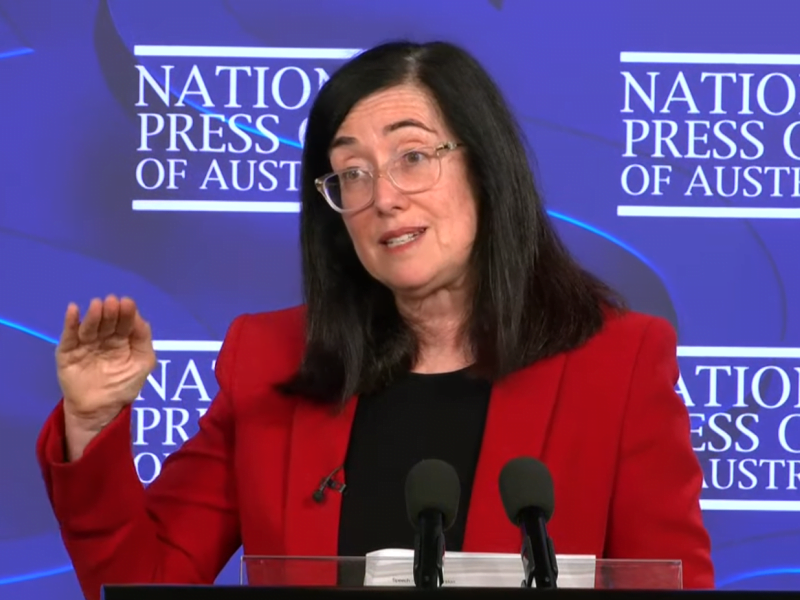Australian Competition and Consumer Commission chair Gina Cass-Gottlieb has called for an overhaul of the country’s merger laws, arguing they are currently unfit to deal with today’s issues, including the increasing market power of technology companies.
In her address to the National Press Club on Wednesday, Ms Cass-Gottlieb proposed a move to “a formal clearance model”, which was similarly flagged in mid-2021 by former ACCC chair Rod Sims in the months before the end of his tenure last year.
Currently, parties to proposed mergers and acquisitions are not required to notify the ACCC until the process is complete. Use of an informal merger authorisation process has seen “a recent rise in applications” but a formal clearance model would require parties to convince the ACCC a transaction is “not likely to substantially lessen competition”.
Ms Cass-Gottlieb noted that “technological advances are driving rapid structural changes to markets”, in addition to ongoing uncertainty and vulnerabilities from “supply chain pressures, geopolitics, and the climate change transition”.
“A handful of large tech companies are playing increasingly important roles in our lives, as gatekeepers over how we interact with each other and businesses, and yet in many cases, these companies face only limited competitive constraint,” Ms Cass-Gottlieb said.
“Part of responding to these challenges is to encourage competitive, innovative and dynamic markets.”

Responding to questions following her speech, Ms Cass-Gottlieb highlighted the importance of a new mergers framework that ensures “key transactions” are reviewed by the regulator to “satisfy ourselves and satisfy the community that we’re accountable to that we’re properly scrutinising”.
She said that there was “no capacity to assess the impact in Australia” of Meta’s acquisition of Giphy in 2020, although this has now been ordered to be sold off by the United Kingdom’s competition regulator.
“A proper process, without going to court cases, will allow us to be assured that we have sufficient time to scrutinise to take action where there are likely to be competition harms and also be looking more transparent to the public, to participants interested, and also to parties themselves about the process,” Ms Cass-Gottlieb said.
A paper on the mergers reform proposal has been submitted to the Treasury. It includes a “mandatory requirement for the ACCC to be notified of mergers above specified thresholds, a requirement for transactions to be suspended from completion without ACCC clearance, and upfront information requirements”.
The threshold has not yet been determined but may give consideration to “the size of the proposed transaction, the size of the business being acquired globally and/or within Australia, or a combination of these factors”.
Additional new factors that should be considered in the process of determining “whether a transaction is likely to substantially lessen competition” have also been proposed. This would include consideration of “entrenching, materially increasing or materially extending a position of substantial market power”.
It would also include consideration as to whether the merger “increased access to, or control of data, technology or other significant assets”.
When Mr Sims called for a reform to merger laws in 2021, he highlighted several markets that were “dominated by a small number of providers” including mobile telecommunications, internet service provision, internet search and social networking services.
Ms Cass-Gottlieb also used her speech to again highlight the ACCC’s concerns regarding digital platform providers’ anti-competitive behaviours such as “self-preferencing, restricting interoperability, exclusivity agreements, practices that limit consumers’ ability to switch between services or devices, or denying access to technological infrastructure”.
A suite of new laws was proposed in the ACCC Regulatory Reform Report last September, including the creation of mandatory codes of conduct for “designated influential digital platforms”.
The ACCC is currently inquiring into the growing “web of interconnected products and services” offered by Big Tech giants, including Google, Amazon, Apple, Meta, and Microsoft.
The multinational tech giants will also face stricter rules against tax minimisation as the federal government works to introduce its multinational tax package announced at the October 2022-23 budget.
Do you know more? Contact James Riley via Email.

